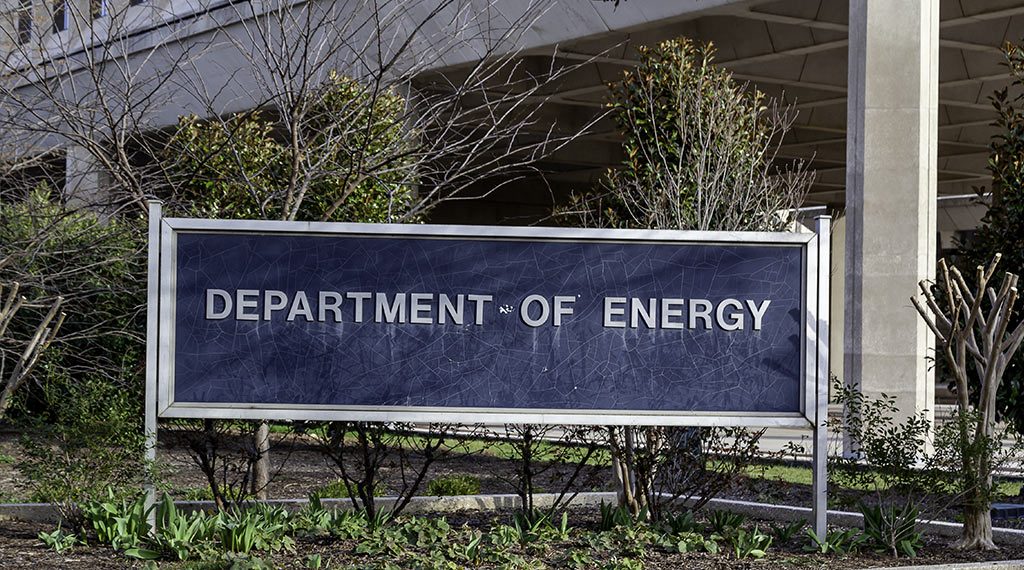Center and allies call on Energy advisory board to prioritize security

While the U.S. Department of Energy is prioritizing climate change and new “carbon neutral” energy, security experts are raising the alarm.
Last week, U.S. Secretary of Energy Jennifer Granholm held the inaugural meeting of the Secretary of Energy Advisory Board (SEAB) “established to provide advice and recommendations to the Secretary on the Administration’s energy policies; the Department’s basic and applied research and development activities; economic and national security policy; and other activities as directed by the Secretary.”
Throughout the virtual meeting there was a heavy focus on addressing climate change with discussions of clean energy, energy storage, and The Department of Energy (DOE)’s “Energy Earthshot Initiative.” Security issues did make an appearance, but primarily in the public comments section.
Michael Mabee, a prominent grid security researcher and retired U.S. Army Command Sergeant Major reminded Secretary Granholm that she had confirmed in a CNN interview on June 6, 2021 that U.S. adversaries have the capability to shut down our power grid. Mabee provided a comprehensive review of the four decades of mostly unheeded warnings about grid vulnerabilities, referencing government studies covering cybersecurity, physical attacks or sabotage threats, geomagnetic disturbance, and electromagnetic pulse (EMP).
“It is unacceptable that after decades of federal reports, studies and congressional hearings on these threats, in 2021 we find that our lights are on at the discretion of our adversaries and mother nature. Tomorrow, somebody may decide to turn them off,” Mabee said.
Joseph Weiss, an international authority on control systems and cyber security, warned the board that “all infrastructures and equipment are at risk as the process sensors aren’t secure and authenticated,” that “control system cyber incidents are real,” and that “our adversaries are aware of these limitations.” Mr. Weiss’ comments included examples of Russia, China, and Iran exploiting these vulnerabilities.
In a blog Weiss warned that “DOE needs to take process sensor cyber security more seriously,” pointing out that “neither process sensor cyber security or hardware supply chain issues were addressed by DOE or their advisors at the SEAB meeting or the October 20-21, 2021 DOE Electricity Advisory Committee meeting.” In less than 24 hours his blog was viewed more than 1,400 times (on a holiday weekend).
David Bardin, a former Presidential Appointee with the Department of Energy at the agency’s very inception and who also worked for 11 years at the Federal Power Administration, provided warnings about foreign manufactured components in the grid and questioned how these risks could be mitigated now and in the future.
Bardin warned that since 2006, the U.S. has imported 372 large electric power transformers from the People’s Republic of China (PRC) and that such transformers, and other equipment, may be critical infrastructure for electric power grids.
Bardin challenged the board to research and publish a report about why U.S. electric utilities are driven to procure these critical assets from overseas and what can be done to expand domestic manufacturing capacity.
The Center’s Director of Infrastructure Security Tommy Waller encouraged the Secretary and SEAB to support the establishment of whistle blower protections for employees working in the electric power industry, since these workers are often the most knowledgeable about grid vulnerabilities. While Waller’s written comments focused almost exclusively on the need for whistle blower protection, he took the opportunity to also discuss the new Earthshots Initiative.
Waller proposed the Department of Energy adopt as one of its “Earthshots” the concept of spent nuclear fuel recycling, to turn a present hazard into a source of power generation for 1,000 years. He also called for the DOE achieve this by building a “Carbon-Free National Laboratory” to conduct the research for this next-generation “new renewable” energy, referencing a concept proposed by Steven Curtis of the Readiness Resource Group.
The board’s Chair, Dr. Arun Majumdar, acknowledged the contributions saying, “we heard loud and clear about security issues especially for the grid and supply chain.” Tt remains to be seen however whether the SEAB will genuinely endeavor to put energy and critical infrastructure security at the forefront of its agenda as it pursues the Energy Secretary’s goals.
- Putin’s “operation holodomor” - February 12, 2026
- Gridlock: why America’s power supply is in danger - February 11, 2026
- “Within 72 Hours, the American Population Will Break Down”: Lt. Col. Tommy Waller - January 8, 2026
